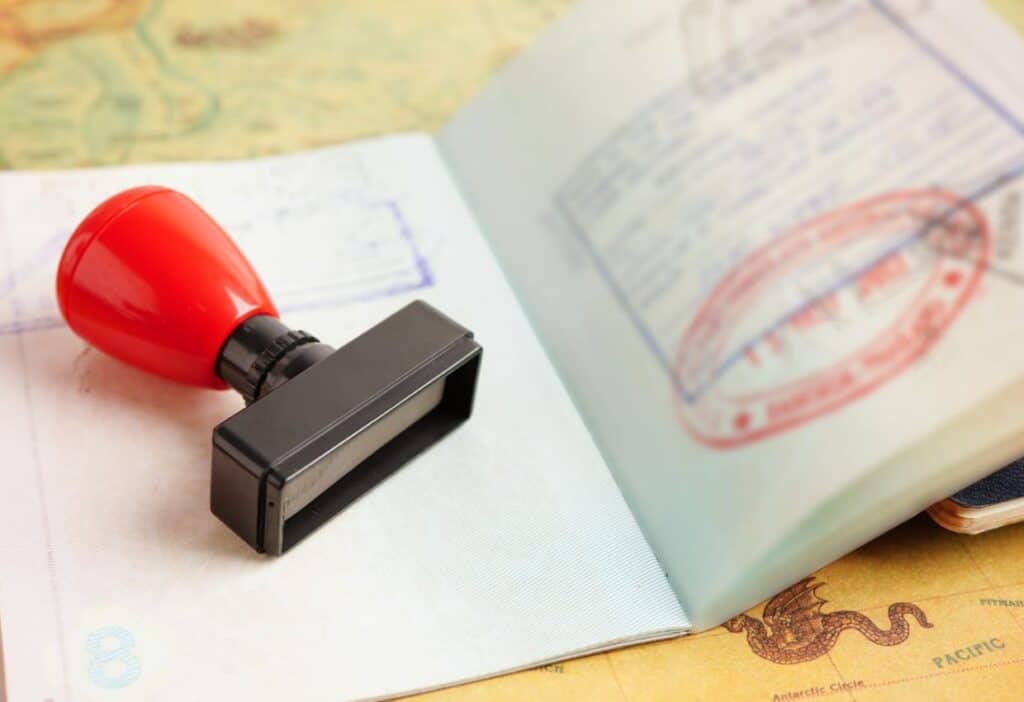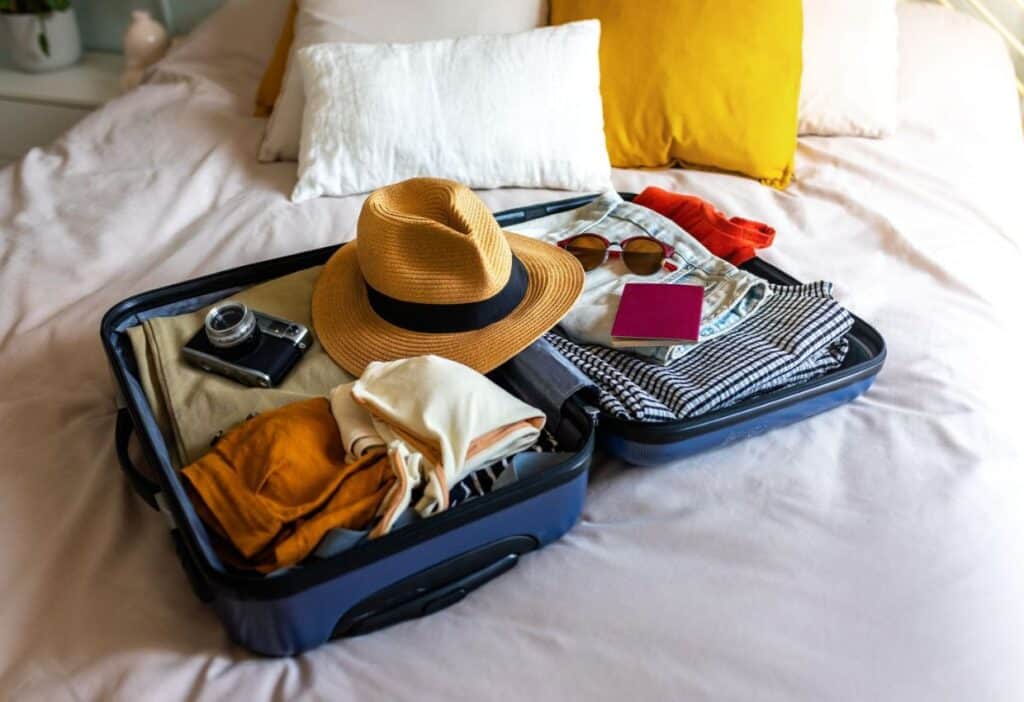Now that you have your dream trip booked, it’s time to start planning the details. You’ll enjoy crystal-clear waters, delicious food and exciting ports of call on your cruise. But before you can board, do you know if you need a passport for your cruise? This guide will clear any confusion and ensure smooth sailing for your trip.

Why you want a passport
Do you think a passport is just for international flights? It’s so much more than that. A passport is your official travel ID, recognized worldwide. It is the standard photo identification on most cruises, though there are some instances when you don’t technically need one.
While you may not need a passport to board a cruise ship in some situations, there are benefits to bringing your passport book. Embarkation and disembarkation are typically faster and smoother for passengers with a passport.
Some Caribbean islands require a passport if you wish to disembark there. Those islands include Barbados, Guadeloupe, Haiti, Martinique, St. Barts and Trinidad and Tobago. The last thing you want is to suddenly discover you can’t explore the fabulous beaches of these islands or go snorkeling.
No one ever wants to think about it, but if something happens on your cruise, you need your passport to fly. That includes any medical emergencies or, if you do not make it back to the cruise ship before it departs for the next port, something that happens to someone on just about every cruise.
What cruises require a passport?
If you are on a closed-loop cruise, you can get away with not bringing a passport. This is only for cruises that depart and return to the same U.S. port. In just about any other situation, you need a passport.
That includes cruises that depart and end in different U.S. ports, as well as those that start or end in a foreign country. Passport cards suffice if your cruise is strictly within the countries bound by the Western Hemisphere Travel Initiative, but if the cruise visits South America, Europe or any other country, you must have a passport book.

Requirements are also becoming stricter as time goes on. Some cruise lines and some ports require a passport when you would not expect them to. If you ever have a question about your specific cruise, verify with your cruise line what their requirements are.
If you find you need a passport, it takes time to process them. While the wait times have decreased from the multiple-month wait applicants have experienced in recent years, it still often takes up to two months to receive one from the time you apply for a passport.
Do kids need passports?
The short answer? Yes, kids under 16 need a passport in the same circumstances adults need one. If it is a closed-loop cruise, kids can skip the passport if needed.
However, if you book a cruise where adults need a passport, kids also need one. This includes infants and toddlers, so plan ahead. You do not want to be denied boarding because you did not have the proper documents for your kids.
What’s the difference between a passport book and a passport card?
When you apply for a passport, you have the option to request a passport book, a passport card or both. While the passport card is cheaper, it also has less utility.
The passport card is valid only for land and sea crossings between the United States, Canada, Mexico, Bermuda and the Caribbean. You cannot fly outside the United States with a passport card in place of a passport book.
Unlike the credit card-sized passport card, a passport book is valid for travel around the world, no matter how you arrive or depart. The cost difference between the 10 years you’ll have your adult passport and five years for a minor passport is minimal, so we recommend that you simply get a passport book and use it to travel.
Remember that your passport must not expire for at least 6 months after the end of the cruise in cases where you need one. You can use a passport expiring sooner on a closed-loop cruise.
Documents needed without a passport
If you booked a closed-loop cruise and do not have a passport, U.S. citizens can generally sail with alternative documents. Anyone age 16 and over will need a government-issued photo ID, like a driver’s license or state ID card, plus proof of U.S. citizenship.
To prove citizenship, most travelers use a birth certificate issued by a government agency. If that is not easily accessible, you can also use a certificate of naturalization; a state-issued Enhanced Driver’s License, which is not the same as a REAL ID; a Trusted Traveler Card from NEXUS, SENTRI or FAST; or an American Indian Card or Enhanced Tribal ID Card.
Note that your voter ID card, social security card, and hospital birth certificates are not accepted. Most of the time, U.S. military identification cards are not accepted either, as they are valid only when traveling on official orders.
If you have TSA precheck, be aware that you do not have a physical card for this. Your cruise ship may ask for your Known Traveler Number to make customs processing faster once you disembark, but this does not provide any proof of citizenship for boarding.
Children under 16 require a birth certificate only and not the photo identification those 16 and older must provide. Remember, these are just the minimums. Double-check with your specific cruise line for their exact requirements.
What about non-U.S. citizens?
Those who are not citizens must present a passport even when the cruise starts and ends at a U.S. port. Lawful permanent residents must also provide their permanent resident card or other proof of permanent resident status.
The exception to the passport requirement is Canadians who are traveling on a closed-loop cruise that does not require a passport for U.S. citizens. They may show an enhanced driver’s license or Trusted Traveler Program card.
Mexican citizens must show a passport, along with a visa or Border Crossing Card. All other non-U.S. citizens must show their passports that do not expire within 6 months of the end of the cruise.

Bon voyage! You’re ready to sail
While you may not want to go through the hassle of getting a passport for your cruise, there are times when it is required, and it is always good for peace of mind. It streamlines your travel experience, offers peace of mind and opens doors for future adventures.
Michelle Price is a food and travel writer at Honest and Truly who almost has an empty nest. She loves to provide both the inspiration and the confidence you need to help get you into the kitchen and on the road to enjoy new flavors and experiences.